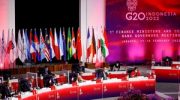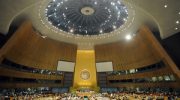Narendra Modi made it clear that he does not support Russia's war against Ukraine.

The recent summit of the Shanghai Cooperation Organization clearly demonstrated Vladimir Putin's shaky position on the world political stage. One of the most vivid examples of this was his meeting with the Prime Minister of India Narendra Modi, who openly expressed his dissatisfaction with the Russian Federation's war against Ukraine. According to international political experts, such a sharp attack on the Kremlin makes it clear to Putin that India is increasingly inclined to cooperate with the US and other Western countries. The BBC writes about it.
“I know that today's era is not an era of war, and we have talked with you many times on the phone that democracy, diplomacy and dialogue are the things that shape the modern world,” said Modi, which immediately put Putin in an awkward position.
According to expert Indrani Bagchifrom the Ananta Aspen Research Center in Delhi, the Indian prime minister's words represent a major shift in tone. And although she is not overly critical, the very fact that Modi expressed an anti-war position implied criticism of Russia's actions.
An expert on India from the Brookings Institution (USA) Tanvi Madan noted that Modi's gesture looked sincere.
“He did not aim to appease Western partners or the countries of the Indo-European region. Modi is really outraged by Russia's actions and their consequences and does not want people to think that he is encouraging them,” Madan said.
Also read: There is no moral conflict: India mulls whether to maintain price caps on Russian oil
Earlier Putin acknowledged China's concerns about Ukraine. According to the Western press, this indicates friction between the Russian Federation and the People's Republic of China.
Related video
The Shanghai Cooperation Organization (SCO) has always been a platform for states with different civilizational approaches, political culture and difficult relationships. However, the authoritarian component of most of these countries, as well as the Chinese economic magnet, make this organization a platform for promoting the Sino-Russian vision of the world order. Read about the transformation of the SCO and its summit held in Samarkand in Natalia Butyrska's article “Putin is in a weak position: why presidents are late for meetings with him”.


